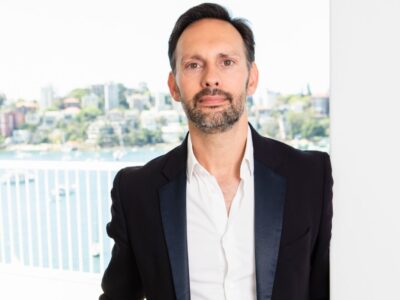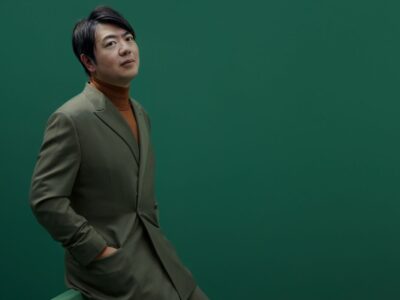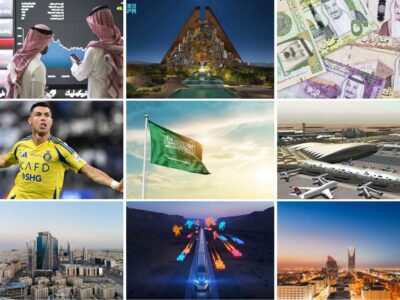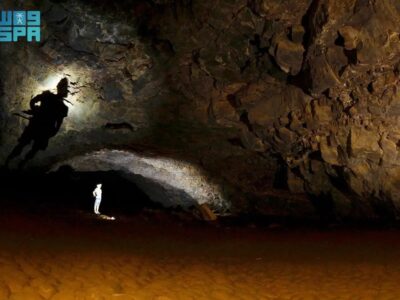Sebastian Coe is a divided man these days. The double Olympic gold champion is balancing his honorary headline-grabbing role as president of the International Association of Athletics Federations (IAAF) with his paid job as chairman of one of the world’s leading media agencies.
Throughout his career — be it in athletics, politics or business — he has never been too far away from the spotlight, and so it probably comes as no surprise that Coe is able to straight bat his way through any topic thrown at him during our interview.
Since succeeding the now-disgraced Lamine Diack as IAAF president in August, Coe has been on the defensive — both for the sport, as it struggles to recover from allegations of corrupt payments and state-sponsored doping, and for himself, amid questions about his prior knowledge of the information that has emerged in the past six months.
As the public face of the IAAF, the athletics world is anxiously waiting to see how he will stabilise the global body, so it appears somewhat of a relief to him when he gets to step away from the limelight and into his day job as chairperson of CSM, the sports division of Chime Communications.
CSM provides advice for governments and brands on hosting or being associated with major sporting events and is involved in marketing, advertising, broadcast and sponsorship services in sports.
The company was sold for $534m last summer to media giant WPP and US firm Providence Equity Partners. Coe is leading the company’s expansion plans across the Middle East, Asia and the US, with golf, tennis, motor racing and rugby clear targets.
His visit to Dubai includes meeting with various sports council officials from the emirate and Abu Dhabi. During the trip, CSM partnered with HSBC and Abu Dhabi at the European Tour golf tournament.
“The underpinning philosophy of CSM Chime is that it’s basically placing our business at the heart of the experience. So it’s maximising the experience for the fans, maximising the relationship and certainly the activation, and really thoughtful proper activation for businesses so that they get the very most out of that, and making sure whoever we’re working with are in alignment with the broader social advantages that we know sport brings to the table,” Coe says.
With a presence in Abu Dhabi, CSM recently opened an office in Dubai, headed up by Tim Wilkinson, well-known in public relations’ circles in the region.
“[The second Dubai office] is a support and enhancement to what we’re doing in Abu Dhabi. We felt that’s important. We want a presence here. It needs to be localised and you have to make sure the relations are always good, and you can’t do that at arms’ length,” Coe says.

“Given the very focused nature that there is in this government and in leadership generally in this region, it is to make sure that we are also working very closely in the holistic approach. Sport provides extraordinary opportunities for fans and we want those fans, particularly the younger ones … but at the same time we are very conscious of the importance of the health-related fitness agenda out there and the alignment of work across governments.”
A former member of UK parliament for the Conservative party, Coe spent five years as a lawmaker in Westminster and remains every bit the politician.
He also dedicated nine years to firstly spearheading the bid team for the London 2012 Olympic Games and subsequently chairing the London Organising Committee of the Olympic and Paralympic Games.
Coe says the GCC region also is ripe for development when it comes to hosting sports events.
“There are many international sports that are looking at the climate as a way of extending their year or presence globally by two or three months. Every sport has done that — tennis, golf — and this is also a very good place for maybe taking some of those big meaty fixtures that have a presence somewhere else to here [in Dubai],” he says.
Coe picks out the recent AC Milan-Real Madrid football match as a prime example, and suggests competitive fixtures also could be played in the region, similar to NFL matches in London.
“It’s not unthinkable. There is much more scope for that kind of arrangement where sports are looking for a global footfall, taking some of those fixtures outside of their own backyard,” he says.
Coe also doesn’t dismiss the notion of possibly hosting an Olympic Games in the region, either. Bidding nations are changing all the time, he says, with more varied and unheralded cities challenging the more established locations.
“You’ve got Kazakhstan falling only four votes short of staging a Winter [Olympic] Games. If you’d have said 20 years ago that there would have been a World Cup in Rio, a World Cup on its way to Qatar, a Winter Games in southern Russia, Kazakhstan and Beijing fighting it out for a Winter Games in 2022, and the European Games in Azerbaijan — even those countries are not the challenger brands any more,” he says.
The rise of areas such as Central and South-East Asia, which are “emerging at a very fast rate,” has upped the ante in the competition to host large-scale events, Coe says. But he insists that a Summer Olympics in the region, while achievable, should be approached with caution by any potential host nation.

“It’s certainly not unthinkable. The only caution that I always give is that, having been through that process, this is hard; this is not something you undertake lightly and it’s not just simply about the delivery of the facilities on time,” Coe says.
“Most international federations would give a city five or six years to deliver one world championship and the challenge that a city is confronted with when the IOC [International Olympics Committee] says ‘yes, you’ve got it’, is that you’re not just delivering one world championship in five years, but over 50 simultaneous world championships in seven years, and you’ve got to do it all in 12 days.”
Additionally, there are legacy issues, which Coe says should be tied into the entire delivery process, “because you’re not just building venues that are going to sit empty for the next 100 years”.
A host nation also will be expected to develop athletes capable of competing at the highest level, he says. Countries in the GCC region have been improving their participation in sport, as well as offering foreigners citizenship to compete in their names, on the understanding that the greatest driver of sporting activity in a country is to have high-achieving athletes in their own backyard.
“My instinct is that the big names in sport at a national level have a bigger impact on the influence of young people wanting to take up sport than just simply public sector promotion to get people fit and healthy,” he says.
CSM has been working with Saudi Arabia’s national Olympic committee to help it with their performance programmes across all the Olympic sports.
“We’re working alongside their coaches. We have a delivery partnership there with Loughborough University which is one of the world’s foremost deliverers of sports coaching education and elite performance. That’s not just seen in isolation; the Saudi government also, off the back of that, now has a very clear route map for using that as a way of engaging more young people in sport and for meeting some of the broader health issues, like diabetes,” he says.
While the programme doesn’t expect to deliver athletes capable of competing on the international stage immediately, he says the Saudis are working through a strategy that will establish which sports they will focus on, “narrowing it down to three or four sports that they can make a difference with”. But in order to follow through on it, there are “four ingredients that are immutable”: world-class governing bodies, coaches and talent, as well as high and predictable levels of funding.
Progress in the kingdom is often in baby steps, he admits, particularly when it comes to women’s participation in sport in general.
“There is a real growing recognition of that. I was at the Olympic Games when the first Muslim woman from the region won a title, Nawal El Moutawakel, who is now the IOC member for Morocco and vice-president of the IOC. There is a recognition that this is a really, really important space to be in. This is now clearly identified in their overall sporting strategy — and also getting more women into administrative roles and coaching positions in sport,” he says.

“It’s not going to happen [overnight]. You also have to be culturally sensitive about what demands you are making. There are alignments here, culturally, socially and politically and you have to recognise that.”
While women’s swimming is unlikely to be at the forefront in Saudi Arabia’s choice of sports, volleyball and some of the martial arts sports are proving popular in the kingdom, Coe says.
However, there is a fine line when it comes to government involvement in sports, as has been the case in Kuwait, where its national football and athletics associations and Olympic committee have been banned from international competition over interference in the governance of their respective sports.
“This is a perennial challenge. It’s the autonomy of sport to make its own decisions and judgements, free from political interference,” Coe says. “It’s never that straightforward, of course, and there’s never a one-size-fits-all. The broader principle has to be that sport, where it can, should always been in a position to make judgements about its own self-interest and the appointment of its own membership.”
An agency such as CSM could help in negotiations between the government and the sporting bodies, he says. “That’s the kind of strategic advice that we offer and have offered in the past to governments and sports organisations. It’s about relationship-building, it’s about the stakeholder-relationships as well,” Coe says.
“CSM has people who have worked in governing bodies, sports events, governments, and social media who are able to work as independent brokers to be able to sit there with governments like Kuwait and say you’ve reached deadlock here and so how can we carve out the right role and responsibilities for sport to flourish in this countries.”
It’s about finding the balance, Coe says, between supporting sport so it can flourish and allowing it to “maintain an autonomy to be self-determining”.
Coe also has had to find a balance between his corporate role and as head of IAAF. Even for this interview, the clear demarcation between the two roles has been established, with two separate discussions taking place over the period of a week.
Ironically, during the course of those seven days, the IAAF faces another crisis, with Adidas reportedly wanting to end their 11-year, $33m sponsorship agreement with the IAAF four years early. Coe denies the deal has already been cancelled, as was first reported.
“We are in discussion with Adidas, but in fairness we’re in discussions with all our global partners,” he says. “Understandably, and hardly with huge surprise, they want to know what the reform path looks like and to understand more about what has happened and I’m very happy to enter that dialogue with them. Those conversations are ongoing and we’ve reached no conclusions about anything.”

The doping scandal is at the heart of the German sportswear giant’s concerns and Coe says even since the World Anti-Doping Agency (WADA) report emerged, they have made good progress in establishing an external, independent anti-doping agency that would deal with all violations in international athletics.
As well as anti-doping, he says the unit would investigate issues including age manipulation (overage competitors), transfer of allegiance, transgender competitors, illegal betting and match-fixing.
He says transfer of allegiance — when athletes, typically from poorer countries, swap citizenship for lucrative salaries to compete for another nation — has benefitted some countries in the GCC but is causing great concern among various federations.
“[Those federations] would have invested in athletes through their athletic programmes and those athletes when they get to the age of 18 or 20 are then lured away to compete for other countries,” he says.
“I’m not specifically referring to any federation, but we need a proper protocol around this. Nor am I saying that every transfer of allegiance isn’t for good reason,” he adds, citing the case of Kenyan-born Wilson Kipketer, who married a Danish citizen and settled in the country, and went on to compete for Denmark at international level.
“If you have an athlete in a conflict zone which might be an inhibitor on training or facilities, you do want to give an athlete a chance to compete elsewhere,” he adds. “We need a protocol that has an agreed position to start off with and at the moment I’m not sure we have that.”
During a recent trip to the region wearing his IAAF cap, Coe also visited Doha, which will host the 2019 World Athletics Championship. The bids for the 2017 and 2019 World Athletics Championships are now under investigation by the IAAF’s ethics commission, at the request of Dahlan Al Hamad, the president of the Qatar Athletics Federation and an IAAF council member. Coe says he will await the outcome of that investigation before commenting further on allegations of bribery.
He says the systems around the bidding process are also part of a wider review that he has undertaken within the IAAF and which he hopes will return trust to the federation. Coe says he’s proposing changes in a range of corporate governance areas, including re-writing the constitution, addressing corporate governance among members and allowing the council to challenge both the president and the executive board.
“The constitution will reflect what we need to deliver a modern sport. The one thing that I’m absolutely open about is that we need to return trust,” he says. “The fans need to know that when they are in the stadium what they’re watching is clean. The sponsors will not be prepared to invest in us if we’re not prepared to show that we take this incredibly seriously, as we have in the past.
“Primarily, the athletes have to know that they’re on a level playing field here. When they look back on their careers, we want them to look back and say ’on some occasions I succeeded and on some occasions I didn’t, that’s sport’, but not that ‘I was actually, ultimately, pipped at the post by a better set of chemists’,” he says.
But Coe concedes that despite any changes he makes, regaining that trust will be a long run with many hurdles.








